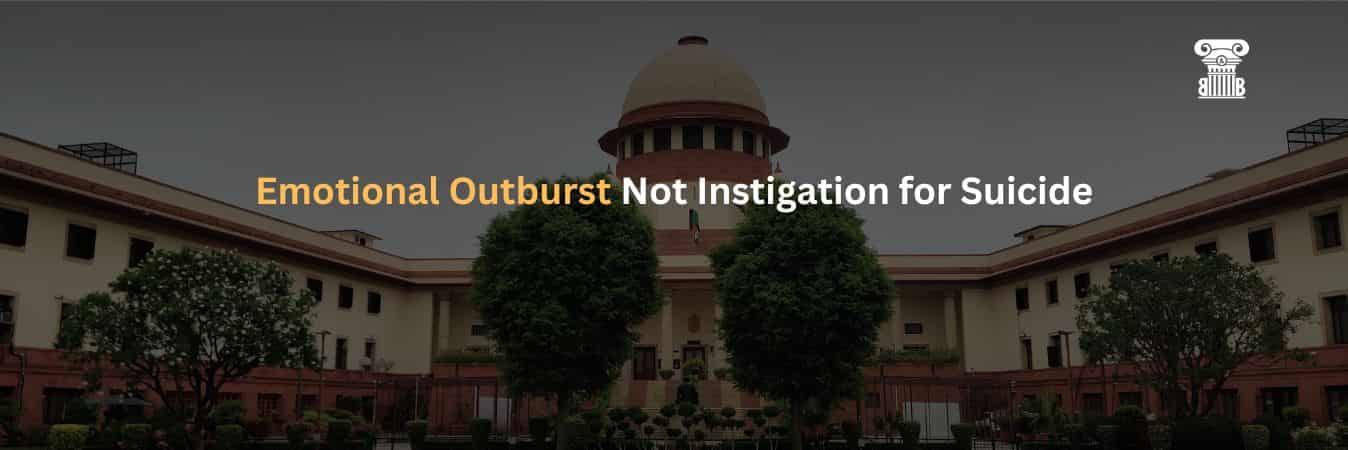In a recent ruling, the Supreme Court of India, in the case of Kumar @ Shiva Kumar versus the State of Karnataka, declared that a statement made in a moment of heightened emotion or anger, without the intention of the consequences to follow, cannot be considered as instigation under Section 306 of the Indian Penal Code, 1860 (IPC).
The Case Background
The prosecution’s case was that the appellant, Kumar @ Shiva Kumar, persistently harassed and teased a woman, pressuring her to marry him. It was alleged that this relentless harassment and pressure from the appellant led the woman to take her own life.
The Trial Court found the appellant guilty of the offence under Section 306 of IPC, sentencing him to three years of rigorous imprisonment and a fine of Rs. 2,000/-. In case of default in payment, the sentence would extend to an additional four months of rigorous imprisonment.
Following the verdict, the appellant filed an appeal under Section 374 of the Code of Criminal Procedure, 1973 (CrPC) before the High Court of Karnataka. However, the High Court dismissed the appeal, upholding the conviction and sentence imposed by the Trial Court. Dissatisfied with the outcome, the appellant took his case to the Supreme Court.
The Supreme Court’s Observations
The Supreme Court, in a bench comprising Justices Bela M. Trivedi and Ujjal Bhuyan, overturned the conviction of the appellant under Section 306 of the IPC. The court observed that if an accused, through their actions or omissions or continued conduct, creates a situation leaving the deceased with no other option but to commit suicide, then it may be inferred as instigation.
However, a statement made in a fit of anger or emotion, without intending the actual consequences to follow, cannot be considered as instigation. The court further noted that to convict a person under Section 306 of IPC, there must be a clear intention (mens rea) to commit the offence. It requires an active or direct act that led the deceased to commit suicide, seeing no other option, and this act of the accused must have been intended to push the deceased into such a position that they committed suicide.
The court also stated that a mere allegation of harassment, without any positive action close to the time of the incident on the part of the accused that led or compelled the deceased to commit suicide, would not sustain a conviction under Section 306 of IPC.
Relevant Legal Provisions
Section 306 of IPC, also covered under Section 108 of the Bhartiya Nyaya Sanhita, 2023(BNS), deals with the abetment of suicide. It states that if any person commits suicide, whoever abets the commission of such suicide, shall be punished with imprisonment of either description for a term which may extend to ten years, and shall also be liable to fine.
For an offence under Section 306 of IPC, there are two requirements: suicide and abetment to commit suicide. While the commission of suicide is not punishable as the culpable person would have departed from this world before facing any indictment, the abetment of suicide is viewed very seriously by law.






